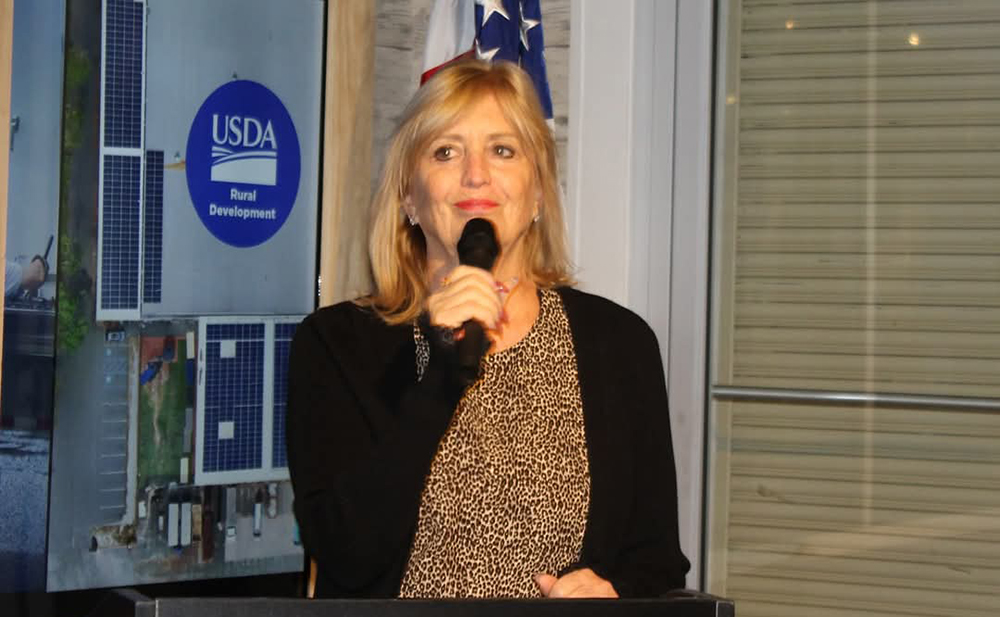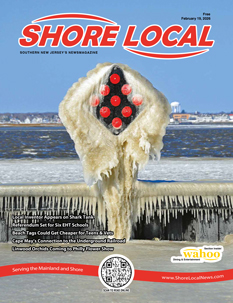By Julia Train
On Friday, Jan. 17, 2025, the United States Department of Agriculture (USDA) Rural Development joined local officials and stakeholders at Surfside Casual Furniture in Somers Point to announce over $16 million in funding for clean energy projects supporting small businesses and farms in “rural and small-town New Jersey.”
Jane Asselta, state director at USDA Rural Development, was in attendance, along with Senator Vince Polistina, Greater Atlantic City Chamber of Commerce Executive Director Michael Chait, Atlantic County Commissioner Maureen Kern and other local and state officials.
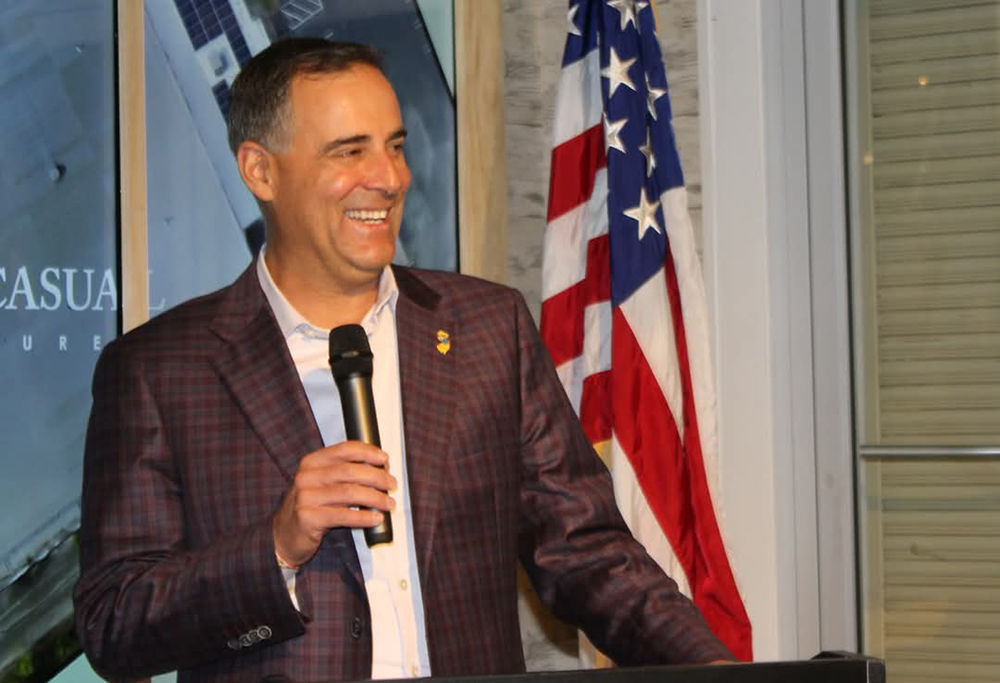
State Senator Vince Polistina offers congratulations on the project. Photo by Julia Train
Surfside Casual Furniture received $793,750 to implement an extensive clean energy project. The initiative includes installing solar panels, battery storage and electric vehicle chargers, enabling the business to transition to an electric vehicle fleet.
The 204.3 kilowatt (kW) roof mount solar array at the 7 Mile Egg Harbor Township location will be connected to a 250 kW microgrid environment containing 1540 kW solar storage and four dual 12 kW electric vehicle chargers.
This move cost over double the grant amount, not including the expense of the electric vehicles, and is expected to cut energy consumption by 91% while also boosting Surfside Casual Furniture’s financial performance.
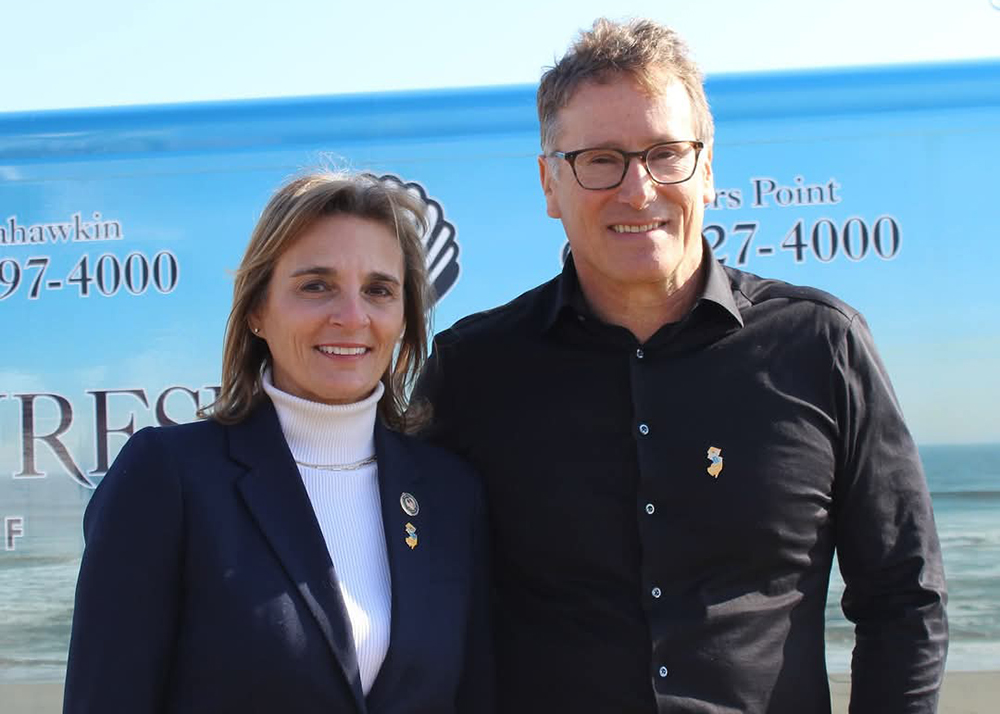
Jane Asselta, state director at USDA Rural Development, and Robert Himmelstein, Surfside Casual Furniture/7 Mile Design president, stand in front of the Surfside Casual Furniture store and its new electric vehicles after the event. Photo by Julia Train.
The project is part of a broader effort to distribute funds from the Inflation Reduction Act (IRA) and Rural Energy for America Program (REAP). Surfside is one of 50 New Jersey recipients benefiting from the grant. Rural Development investments in Atlantic and Cape May counties total over $2.8 million across 13 projects.
According to Jane Asselta, New Jersey state director of USDA Rural Development, the state typically receives about $500,000 annually for the Rural Energy for America Program, which can support three or four projects annually. However, the program received an influx of funds because of the IRA, totaling over $16.2 million split between 50 grants.
“Our grant recipients have taken an affirmative step to free their business from the inflation of energy prices, saving money so they can reinvest the savings into their businesses,” said Asselta, according to a press release from the USDA announcing the clean energy project funding.
According to the same press release, Robert Himmelstein, Surfside Casual Furniture/7 Mile Design president, said, “Despite challenges from utility grid limitations, our commitment has driven us to develop clean energy solutions for generations to come.”
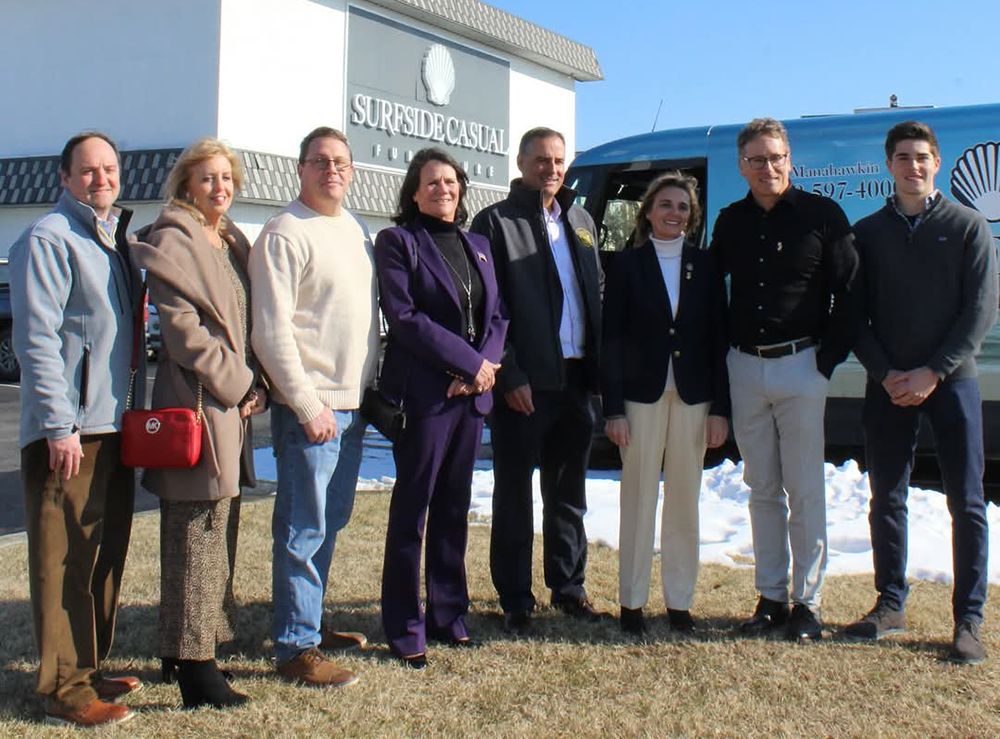
(From left to right) Michel Chait, president of the Greater Atlantic City Chamber of Commerce; Somers Point City Councilwoman Janice Johnston; Josh Lewin, president of Helios Solar Energy; Atlantic County Commissioners Chairwoman Maureen Kern; state Sen. Vince Polistina; Jane Asselta, of USDA Rural Development for New Jersey; Surfside Casual/7Mile Design owner Robert Himmelstein and Stefen Himmelstein, vice president of operations, outside the store in Somers Point. Photo by Julia Train.
After Atlantic City Electric stopped allowing further connections to the grid and grid closures affecting the entire state, the team came up with a solution following the passage of the IRA bill.
They proposed using battery storage paired with a solar system to create an entirely off-grid setup. The idea was to not only generate power but also use it effectively. They suggested converting four of the business owner’s vehicles to electric, which was so well-received that he converted five.
The result was an energy transfer station that functions off the grid but includes backup power if needed. Despite opposition from the utility company, the project succeeded, thanks to the support from the grant.
“Robert and I have been working together now [for] about nine years or so on solar projects and things. [He] has made this a cornerstone of one of his business models and things like that, to be energy efficient and hedge against future inflation,” said Joshua Lewi, president at Helios Solar Energy.

